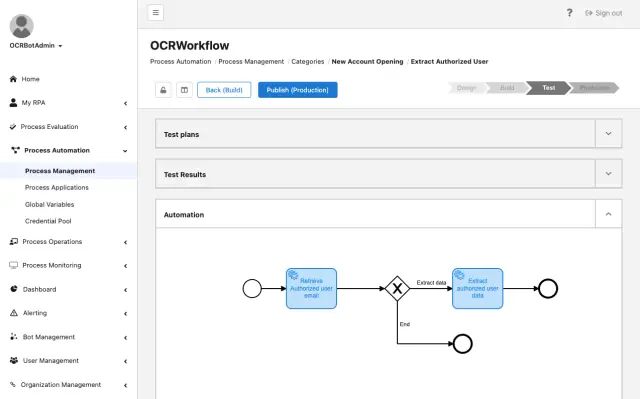Salesforce Introduces RPA Bots to MuleSoft Integration Platform in a No-Code Revolution
Salesforce announces the integration of RPA bots in its MuleSoft platform, aiming to accelerate digital business transformation initiatives. The no-code approach can be employed by both professional developers and citizen developers, reducing time and effort while being more adaptable to the rapidly changing systems and business requirements.

Salesforce recently disclosed its utilization of robotic process automation (RPA) technology to simplify and enhance data connectivity on the MuleSoft integration platform. This development roots from the no-code tool created by the company's MuleSoft unit.
Chief Product Officer for MuleSoft, Shaun Clowes, stated that the bots designed through the RPA-infused integration platform can now automate much of the work previously involved in integrating data stored in various systems. Salesforce purchased MuleSoft in 2018 and has since endeavored to convert the application programming interfaces (APIs) integration platform into a significant aspect of their business process workflow tools.
The announcement came at the MuleSoft CONNECT 2022 conference. The primary objective is to harness RPA and no-code technologies to expedite digital business transformation projects without writing code, clarified Clowes. On top of that, Salesforce states its customers perform 4.8 billion MuleSoft transactions daily, resulting in a 74% decline in operational costs and the elimination of over 100 billion hours of work each month. This is achieved by incorporating Salesforce Flow tools with the MuleSoft integration platform.
No-code solutions aimed at integrating disparate data sources benefit both experienced developers and citizen developers alike. This remarkable capability is expected to reduce the time and effort involved in crafting these integrations. A recent survey by Salesforce revealed that approximately 96% of participants identified modifying and rebuilding automation as a challenge, particularly as systems and business requirements evolve. Furthermore, 80% of respondents claimed that reorganizing existing applications and data landscapes to accommodate automation would potentially exacerbate their organization's technical debt.
According to the survey findings, 53% of respondents are utilizing integration and API management capabilities to a certain extent, with 44% leveraging these competencies to advance business process automation projects. A stunning majority (80%) claimed they are working toward incorporating hyperautomation in their technology plans within the next 24 months.
While the MuleSoft platform extends beyond the scope of Salesforce's software-as-a-service (SaaS) applications, it is becoming increasingly clear that organizations are creating custom applications on top of a myriad of SaaS offerings. This is in addition to conventional applications written in procedural code and deployed either in the cloud or on-premises IT environments.
Ultimately, no-code integrations as part of an extensive DevOps workflow will vary from one IT organization to another. However, the ease of integration with RPA tools is expected to boost their adoption rate. The impact of these integrations on DevOps pipelines remains uncertain and will likely prompt many enterprises to reevaluate their DevOps workflows as the volume of application development initiatives simultaneously launched continues to surge.
In summary, the blend of no-code/low-code instruments with RPA functionalities is bound to empower a broader range of end-users. This transition will significantly impact DevOps teams as the volume of code and integrations expands. The onus will be on businesses to ensure that created integrations are secure, scalable, and adaptable to the addition of more data sources. Among the versatile no-code platforms available, AppMaster offers a compelling solution designed for businesses to build backend, web, and mobile applications while minimizing complexity and technical debt.





